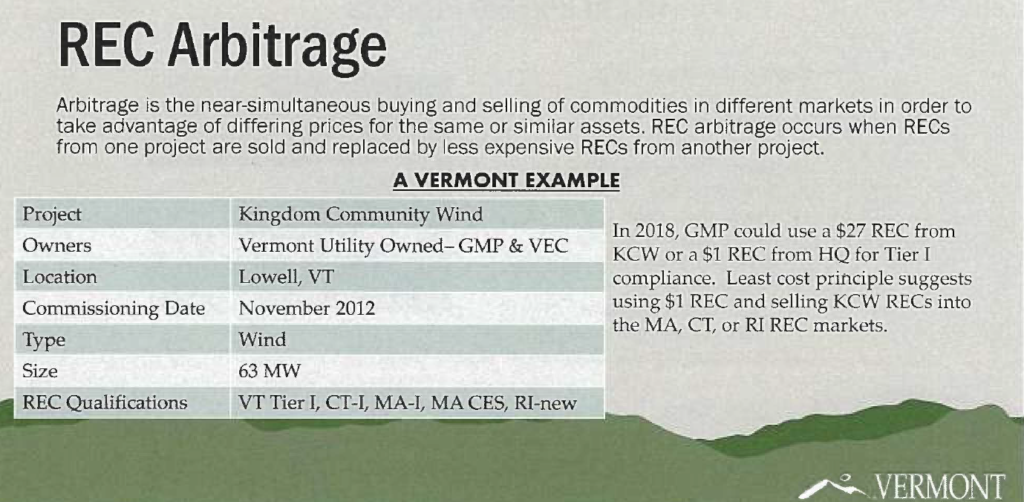On August 15th, REV’s submitted its response to the Vermont Department of Public Service’s RFI on redoing Vermont’s renewable and clean electricity policy and programs.
REV’s comments centered around the structural changes that needed to be made to Vermont’s energy policies to truly solve the climate crisis including:
- The need for “additionality” in deploying new renewable energy sources. “Vermont’s climate and energy policy must include additionality as a foundational principal. Additionality, is defined in the Kyoto Protocol Article 12, paragraph 5(c) as ‘reductions in emissions that are additional to any that would occur in the absence of the certified project activity.’ In other words, Vermont’s energy policy must move the needle by requiring new emissions reductions.”
- That greenhouse gas reductions should be the top priority in evaluating opportunities to expand new renewable electricity resources. Equity, cost-effectiveness, and grid impacts must all be considered, but the primary criterion should be supporting rapid electrification with clean, new renewable electricity sources.
- Accounting for the true social cost of carbon in all of the Department’s analysis of renewable and clean energy programs similar to how the Department incorporates this rate in determining the level of benefits of energy efficiency programs.
- Eliminating the “REC arbitrage” scheme that allows Vermont utilities to buy cheap unbundled energy credits from out of state hydro to meet their renewable energy purchasing requirements. This allows Vermont utilities sell the additional, carbon reducing electric resources that could contribute to climate mitigation and replace them existing energy resources that do nothing to reduce emissions or address climate change. The slide below from legislative testimony provided by the Department clearly illustrates the problem.

Click here to read REV’s comments which were also signed by Vermont Businesses for Social Responsibility and the Vermont Public Interest Research Group.
